Member states of NATO

The North Atlantic Treaty Organization (NATO) is an international military alliance consisting of 32 member states from Europe and North America. It was established at the signing of the North Atlantic Treaty on 4 April 1949. Of the 32 member countries, 30 are in Europe and two are in North America. Between 1994 and 1997, wider forums for regional cooperation between NATO and its neighbours were set up, including the Partnership for Peace, the Mediterranean Dialogue initiative, and the Euro-Atlantic Partnership Council.
All members have militaries, except for Iceland, which does not have a typical army (but it does have a coast guard and a small unit of civilian specialists for NATO operations). Three of NATO's members are nuclear weapons states: France, the United Kingdom, and the United States. NATO has 12 original founding member states. Three more members joined between 1952 and 1955, and a fourth joined in 1982. Since the end of the Cold War, NATO has added 16 more members from 1999 to 2024.[1] Article 5 of the treaty states that if an armed attack occurs against one of the member states, it shall be considered an attack against all members, and other members shall assist the attacked member, with armed forces if necessary.[2] Article 6 of the treaty limits the scope of Article 5 to the islands north of the Tropic of Cancer, the North American and European mainlands, the entirety of Turkey, and French Algeria, the last of which has been moot since July 1962. Thus, an attack on Hawaii, Puerto Rico, French Guiana, the Falkland Islands, Ceuta or Melilla, among other places, would not trigger an Article 5 response.
NATO recognizes Bosnia and Herzegovina, Georgia, and Ukraine as aspiring members as part of their Open Doors enlargement policy.[3]

Founding members and enlargement
[edit]NATO was established on 4 April 1949 via the signing of the North Atlantic Treaty (Washington Treaty). The 12 founding members of the Alliance were: Belgium, Canada, Denmark, France, Iceland, Italy, Luxembourg, the Netherlands, Norway, Portugal, the United Kingdom, and the United States.[4]
The various allies all signed the Ottawa Agreement,[5] which is a 1951 document that acts to embody civilian oversight of the Alliance.[5][6]
Current membership consists of 32 countries. In addition to the 12 founding countries, four new members joined during the Cold War: Greece and Turkey (1952), West Germany (1955) and Spain (1982). Additionally, NATO experienced territorial expansion during this period without adding new member states when Zone A of the Free Territory of Trieste was annexed by Italy in 1954, and the territory of the former East Germany was added with the reunification of Germany in 1990. NATO further expanded after the Cold War, adding the Czech Republic, Hungary, and Poland (1999); Bulgaria, Estonia, Latvia, Lithuania, Romania, Slovakia, and Slovenia (2004); Albania and Croatia (2009); Montenegro (2017); North Macedonia (2020); Finland (2023); and Sweden (2024).[4] Of the territories and members added between 1990 and 2024, all except for Finland and Sweden were either formerly part of the Warsaw Pact (including the formerly Soviet Baltic states) or territories of the former Yugoslavia. No countries have left NATO since its founding, although France withdrew from NATO unified command between 1966 and 2009.
Currently, the North Atlantic Treaty Organization now covers a total area of 27,580,492 km2 (10,648,887 sq mi), since the accession of Sweden on 7 March 2024.
List of member states
[edit]The current members and their dates of admission are listed below.
| Flag | Map | Name | Capital | Accession[7] | Population [8][9] | Area [10] | Military budget as %GDP 2024[11] | GDP 2023 (million US$)[12] | Languages |
|---|---|---|---|---|---|---|---|---|---|
 |  | Albania | Tirana | 1 April 2009 | 2,854,710 | 28,748 km2 (11,100 sq mi) | 2.03 | 22,743 | Albanian |
 |  | Belgium | Brussels | 24 August 1949[a] | 11,611,419 | 30,528 km2 (11,787 sq mi) | 1.30 | 630,110 | Dutch French German |
 |  | Bulgaria | Sofia | 29 March 2004 | 6,885,868 | 110,879 km2 (42,811 sq mi) | 2.18 | 101,611 | Bulgarian |
 |  | Canada | Ottawa | 24 August 1949[a] | 38,155,012 | 9,984,670 km2 (3,855,103 sq mi) | 1.37 | 2,140,086 | English French |
 |  | Croatia | Zagreb | 1 April 2009 | 4,060,135 | 56,594 km2 (21,851 sq mi) | 1.81 | 82,044 | Croatian |
 |  | Czech Republic[b] | Prague | 12 March 1999 | 10,510,751 | 78,867 km2 (30,451 sq mi) | 2.10 | 332,025 | Czech |
 |  | Denmark[c] | Copenhagen | 24 August 1949[a] | 5,854,240 | 2,210,573 km2 (853,507 sq mi)[d] | 2.37 | 405,199 | Danish |
 |  | Estonia | Tallinn | 29 March 2004 | 1,328,701 | 45,228 km2 (17,463 sq mi) | 3.43 | 40,757 | Estonian |
 |  | Finland | Helsinki | 4 April 2023 | 5,619,399 | 338,455 km2 (130,678 sq mi) | 2.41 | 300,499 | Finnish Swedish |
 |  | France[e] | Paris | 24 August 1949[a] | 64,531,444 | 643,427 km2 (248,429 sq mi) | 2.06 | 3,031,778 | French |
 |  | Germany[f] | Berlin | 6 May 1955 (West Germany) 3 October 1990 (Germany) | 83,408,554 | 357,022 km2 (137,847 sq mi) | 2.12 | 4,457,366 | German |
 |  | Greece | Athens | 18 February 1952 | 10,445,365 | 131,957 km2 (50,949 sq mi) | 3.08 | 238,275 | Greek |
 |  | Hungary | Budapest | 12 March 1999 | 9,709,786 | 93,028 km2 (35,918 sq mi) | 2.11 | 212,610 | Hungarian |
 |  | Iceland | Reykjavík | 24 August 1949[a] | 370,335 | 103,000 km2 (39,769 sq mi) | 0.0 | 31,020 | Icelandic |
 |  | Italy | Rome | 59,240,329 | 301,340 km2 (116,348 sq mi) | 1.49 | 2,255,503 | Italian | |
 |  | Latvia | Riga | 29 March 2004 | 1,873,919 | 64,589 km2 (24,938 sq mi) | 3.15 | 43,598 | Latvian |
 |  | Lithuania | Vilnius | 2,786,651 | 65,300 km2 (25,212 sq mi) | 2.85 | 77,926 | Lithuanian | |
 |  | Luxembourg | Luxembourg | 24 August 1949[a] | 639,321 | 2,586 km2 (998 sq mi) | 1.29 | 85,780 | Luxembourgish French German |
 |  | Montenegro | Podgorica | 5 June 2017 | 627,859 | 13,812 km2 (5,333 sq mi) | 2.02 | 7,406 | Montenegrin |
 |  | Netherlands[g] | Amsterdam | 24 August 1949[a] | 17,501,696 | 41,543 km2 (16,040 sq mi)[h] | 2.05 | 1,117,101 | Dutch |
 |  | North Macedonia | Skopje | 27 March 2020 | 2,103,330 | 25,713 km2 (9,928 sq mi) | 2.22 | 14,769 | Macedonian |
 | 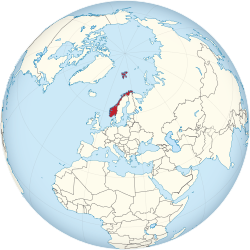 | Norway[i] | Oslo | 24 August 1949[a] | 5,403,021 | 323,802 km2 (125,021 sq mi)[j] | 2.20 | 485,513 | Norwegian |
 | 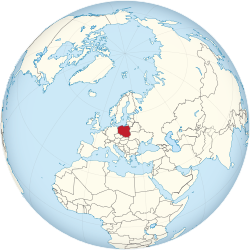 | Poland | Warsaw | 12 March 1999 | 38,307,726 | 312,685 km2 (120,728 sq mi) | 4.12 | 808,435 | Polish |
 | 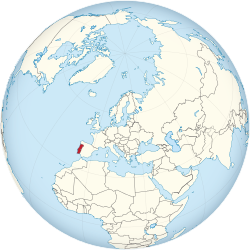 | Portugal | Lisbon | 24 August 1949[a] | 10,290,103 | 92,090 km2 (35,556 sq mi) | 1.55 | 287,421 | Portuguese |
 |  | Romania | Bucharest | 29 March 2004 | 19,328,560 | 238,391 km2 (92,043 sq mi) | 2.25 | 345,894 | Romanian |
 | 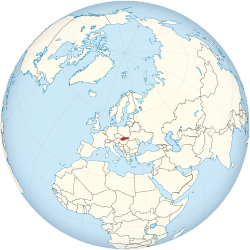 | Slovakia | Bratislava | 5,447,622 | 49,035 km2 (18,933 sq mi) | 2.0 | 132,122 | Slovak | |
 |  | Slovenia | Ljubljana | 2,119,410 | 20,273 km2 (7,827 sq mi) | 1.29 | 68,236 | Slovene | |
 |  | Spain[k] | Madrid | 30 May 1982 | 47,486,935 | 505,370 km2 (195,124 sq mi) | 1.28 | 1,581,151 | Spanish |
 |  | Sweden | Stockholm | 7 March 2024 | 10,467,097 | 450,295 km2 (173,860 sq mi) | 2.14 | 593,268 | Swedish |
 |  | Turkey[l] | Ankara | 18 February 1952 | 84,775,404 | 783,562 km2 (302,535 sq mi) | 2.09 | 1,108,453 | Turkish |
 |  | United Kingdom[m] | London | 24 August 1949[a] | 67,281,039 | 243,610 km2 (94,058 sq mi) | 2.33 | 3,344,744 | English |
 | 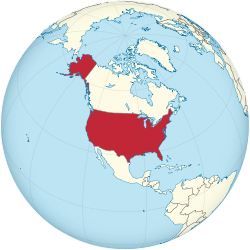 | United States[n] | Washington, D.C. | 336,997,624 | 9,833,520 km2 (3,796,743 sq mi) | 3.38 | 27,357,825 |
Special arrangements
[edit]The three Nordic countries which joined NATO as founding members, Denmark, Iceland and Norway, chose to limit their participation in three areas: there would be no permanent peacetime bases, no nuclear warheads and no Allied military activity (unless invited) permitted on their territory. However, Denmark allowed the U.S. to maintain an existing base, Thule Air Base (now Pituffik Space Base), in Greenland.[13]
From the mid-1960s to the mid-1990s, France pursued a military strategy of independence from NATO under a policy dubbed "Gaullo-Mitterrandism".[14] Nicolas Sarkozy negotiated the return of France to the integrated military command and the Defence Planning Committee in 2009, the latter being disbanded the following year. France remains the only NATO member outside the Nuclear Planning Group and unlike the United States and the United Kingdom, will not commit its nuclear-armed submarines to the alliance.[15][16]
Membership aspirations
[edit]As of March 2024[update], three additional states have formally informed NATO of their membership aspirations: Bosnia and Herzegovina, Georgia, and Ukraine.[3]
- NATO members agreed at the 2008 Bucharest Summit that Georgia and Ukraine "will become members of NATO in the future".[17]
- Bosnia and Herzegovina was invited by NATO to join the Membership Action Plan (MAP) in April 2010.[17]
Withdrawal
[edit]No state has ever withdrawn from NATO, but some dependencies of member states have not requested membership after becoming independent:
 Cyprus (independence from the United Kingdom in 1960)
Cyprus (independence from the United Kingdom in 1960) Algeria (independence from France in 1962)
Algeria (independence from France in 1962) Malta (independence from the United Kingdom in 1964)
Malta (independence from the United Kingdom in 1964)
Military personnel
[edit]The following list is constructed from The Military Balance, published annually by the International Institute for Strategic Studies.
| Country[18] | Active | Reserve | Paramilitary | Total | Per 1,000 capita | Ref. | |
|---|---|---|---|---|---|---|---|
| total | active | ||||||
| 5,350 | 2,100 | 2,150 | 9,600 | 3.1 | 1.7 | ||
| 23,500 | 5,900 | 0 | 29,400 | 2.5 | 2 | ||
| 36,950 | 3,000 | 0 | 39,950 | 5.9 | 5.4 | ||
| 62,300 | 29,100 | 5,800 | 97,200 | 2.5 | 1.6 | ||
| 16,800 | 21,000 | 3,000 | 40,800 | 9.8 | 4 | ||
| 26,600 | 0 | 0 | 26,600 | 2.5 | 2.5 | ||
| 13,100 | 44,200 | 0 | 57,300 | 9.6 | 2.2 | ||
| 7,100 | 20,000 | 21,200 | 48,300 | 40.5 | 5.9 | ||
| 23,850 | 233,000 | 2,900 | 259,750 | 46.2 | 4.2 | ||
| 202,200 | 38,500 | 95,100 | 335,800 | 4.9 | 3 | ||
| 179,850 | 34,100 | 0 | 213,950 | 2.5 | 2.1 | ||
| 132,000 | 289,000 | 7,400 | 428,400 | 41 | 12.6 | ||
| 32,150 | 20,000 | 0 | 52,150 | 5.3 | 3.3 | ||
| 0 | 0 | 250 | 250 | 0.7 | 0 | ||
| 161,850 | 14,500 | 178,600 | 354,950 | 5.8 | 2.7 | [o] | |
| 6,600 | 16,000 | 0 | 22,600 | 12.5 | 3.7 | ||
| 16,100 | 12,950 | 18,400 | 47,450 | 18.1 | 6.1 | ||
| 900 | 0 | 600 | 1,500 | 2.2 | 1.3 | ||
| 2,710 | 2,800 | 4,100 | 9,610 | 16 | 4.5 | ||
| 33,650 | 6,350 | 6,500 | 46,500 | 2.6 | 1.9 | ||
| 8,000 | 4,850 | 7,600 | 20,450 | 9.6 | 3.7 | ||
| 25,400 | 40,000 | 0 | 65,400 | 11.9 | 4.6 | ||
| 164,100 | 37,500 | 14,300 | 215,900 | 5.6 | 4.2 | ||
| 21,500 | 23,500 | 22,600 | 67,600 | 6.6 | 2.1 | ||
| 69,900 | 55,000 | 57,000 | 181,900 | 10 | 3.9 | ||
| 12,800 | 0 | 0 | 12,800 | 2.3 | 2.3 | ||
| 6,200 | 950 | 0 | 7,150 | 3.4 | 3 | ||
| 122,200 | 13,800 | 80,500 | 216,500 | 4.6 | 2.6 | ||
| 14,850 | 21,500 | 0 | 36,350 | 3.4 | 1.4 | ||
| 355,200 | 378,700 | 160,800 | 894,700 | 10.6 | 4.2 | ||
| 141,100 | 70,450 | 0 | 211,550 | 3.1 | 2.1 | ||
| 1,315,600 | 797,200 | 0 | 2,112,800 | 6.2 | 3.8 | ||
| 3,240,410 | 2,233,850 | 688,800 | 6,163,060 | 6.3 | 3.3 | ||
Military expenditures
[edit]- United States (65.63%)
- All other NATO countries total (34.37%)
- Greece (1.75%)
- Estonia (0.28%)
- Portugal (0.99%)
- Montenegro (0.03%)
- Lithuania (0.51%)
- Norway (2.05%)
- Turkey (4.42%)
- Latvia (0.25%)
- Denmark (1.91%)
- Croatia (0.34%)
- North Macedonia (0.062%)
- Romania (1.32%)
- Hungary (1.01%)
- Bulgaria (0.45%)
- Italy (7.63%)
- France (13.47%)
- Poland (7.5%)
- Spain (4.57%)
- Slovenia (0.21%)
- United Kingdom (18.03%)
- Slovakia (0.62%)
- Canada (6.56%)
- Germany (17.26%)
- Netherlands (3.85%)
- Other (4.93%)
The defence spending of the United States is more than double the defence spending of all other NATO members combined.(Note that this is total U.S. defense spending, not spending specifically for NATO) [19] Criticism of the fact that many member states were not contributing their fair share in accordance with the international agreement by then US president Donald Trump caused various reactions from American and European political figures, ranging from ridicule to panic.[20][21][22] While NATO members have committed to spending at least 2% of their Gross Domestic Product (GDP) on defence, most of them did not meet that goal in 2023.[23]
| Member state | Population[r] | GDP (nominal) ($billions)[s] | Defence expenditure (US$)[s] | Personnel[s] | ||
|---|---|---|---|---|---|---|
| Total ($millions) | % real GDP | Per capita | ||||
| 3,101,621 | 25.43 | 516 | 2.03 | 114 | 7,000 | |
| 11,913,633 | 655.74 | 8,519 | 1.30 | 585 | 21,300 | |
| 6,827,736 | 106.72 | 2,325 | 2.18 | 218 | 26,900 | |
| 38,516,736 | 2,233.83 | 30,495 | 1.37 | 609 | 77,100 | |
| 4,169,239 | 89.90 | 1,624 | 1.81 | 315 | 13,700 | |
| 10,706,242 | 326.13 | 6,834 | 2.10 | 426 | 29,500 | |
| 6,057,361 | 418.58 | 9,940 | 2.37 | 1,479 | 17,300 | |
| 1,202,762 | 41.89 | 1,437 | 3.43 | 690 | 7,500 | |
| 5,614,571 | 302.72 | 7,308 | 2.41 | 1,103 | 30,800 | |
| 62,819,428 | 3,120.35 | 64,271 | 2.06 | 801 | 204,700 | |
| 84,220,184 | 4,610.04 | 97,686 | 2.12 | 911 | 185,600 | |
| 10,497,595 | 249.81 | 7,684 | 3.08 | 648 | 110,800 | |
| 9,670,009 | 231.61 | 4,889 | 2.11 | 349 | 20,900 | |
| 360,872 | 32.89 | — | — | — | — | |
| 61,021,855 | 2,311.17 | 34,462 | 1.49 | 505 | 171,400 | |
| 1,821,750 | 45.15 | 1,421 | 3.15 | 539 | 8,400 | |
| 2,655,755 | 80.72 | 2,300 | 2.85 | 538 | 18,500 | |
| 660,924 | 60.69 | 785 | 1.29 | 921 | 900 | |
| 602,445 | 8.02 | 162 | 2.02 | 170 | 1,600 | |
| 17,463,930 | 1,162.88 | 21,640 | 1.85 | 1,030 | 41,900 | |
| 2,133,410 | 15.87 | 353 | 2.22 | 127 | 6,100 | |
| 5,600,850 | 482.58 | 10,606 | 2.20 | 1,754 | 24,300 | |
| 37,991,766 | 848.86 | 34,975 | 4.12 | 711 | 216,100 | |
| 10,223,150 | 298.98 | 4,627 | 1.55 | 360 | 28,400 | |
| 18,326,327 | 383.92 | 8,644 | 2.25 | 289 | 66,600 | |
| 5,425,319 | 142.81 | 2,841 | 1.99 | 387 | 15,600 | |
| 2,099,790 | 73.52 | 949 | 1.29 | 339 | 5,900 | |
| 47,051,085 | 1,658.36 | 21,269 | 1.28 | 366 | 117,400 | |
| 10,536,338 | 626.54 | 13,428 | 2.14 | 1,185 | 23,100 | |
| 83,593,483 | 1,090.29 | 22,776 | 2.09 | 310 | 481,000 | |
| 68,502,956 | 3,520.50 | 82,107 | 2.33 | 1,077 | 138,100 | |
| 338,229,980 | 28,719.94 | 967,707 | 3.37 | 2,239 | 1,300,200 | |
| 969,619,192 | 53,976.44 | 1,474,399 | 2.73 | 1,210 | 3,418,600 | |
Political and popular support
[edit]This section needs to be updated. (April 2022) |
Pew Research Center's 2016 survey among its member states showed that while most countries viewed NATO positively, most NATO members preferred keeping their military spending the same. The response to whether their country should militarily aid another NATO country if it were to get into a serious military conflict with Russia was also mixed. Roughly half or fewer in six of the eight countries surveyed say their country should use military force if Russia attacks a neighboring country that is a NATO ally. And at least half in three of the eight NATO countries say that their government should not use military force in such circumstances. The strongest opposition to responding with armed force is in Germany (58%), followed by France (53%) and Italy (51%). More than half of Americans (56%) and Canadians (53%) are willing to respond to Russian military aggression against a fellow NATO country. A plurality of the British (49%) and Poles (48%) would also live up to their Article 5 commitment. The Spanish are divided on the issue: 48% support it, 47% oppose.[27][28]
Notes
[edit]- ^ a b c d e f g h i j Founding member of NATO.
- ^ Officially referred to by the name Czechia. (See Czech Republic#Name.)
- ^ Including the Faroe Islands and Greenland.
- ^ including Faroe Islands and Greenland.
- ^ Article 5 of the North Atlantic Treaty doesn't cover overseas territories of France apart from Saint Pierre and Miquelon.
- ^ Germany initially joined NATO as West Germany. The former country of East Germany became part of NATO after German reunification.
- ^ Article 5 of the North Atlantic Treaty covers only the European part of the Kingdom of the Netherlands.
- ^ Figure includes the islands of Bonaire, Saba and Sint Eustatius, but they don't fall under the NATO treaty.
- ^ Article 5 of the North Atlantic Treaty doesn't cover Bouvet Island.
- ^ Including Jan Mayen, and Svalbard.
- ^ Excluding the Plazas de soberanía region.
- ^ Officially referred to by the name Türkiye. (See Name of Turkey.)
- ^ Including Bermuda, Gibraltar, Guernsey, Isle of Man, and Jersey. Other overseas territories are not covered under Article 5.
- ^ Article 5 of the North Atlantic Treaty covers neither Hawaii nor any of the US territories.
- ^ The paramilitary forces of Italy consist of the Carabinieri and the Guardia di Finanza.
- ^ a b Country order is the same as the preceding chart (military personnel per 1,000 capita) to maintain the same country colours between charts.
- ^ The pie chart format does not allow as many slices as there are countries in NATO, so certain countries (Albania, Belgium, Czech Republic, Finland, Iceland and Luxembourg) have been combined into a single slice.
- ^ Population data is based on a 2023 estimate by the Central Intelligence Agency in The World Factbook.[25]
- ^ a b c Defence expenditure, GDP and personnel data are based on a June 2024 press release from NATO.[26]
References
[edit]Citations
[edit]- ^ Center, Notre Dame International Security (23 March 2023). "The Addition of NATO Members Over Time (1949–2023)". ND International Security Center. Archived from the original on 21 January 2024. Retrieved 11 July 2023.
- ^ "The North Atlantic Treaty". North Atlantic Treaty Organization. 4 April 1949. Archived from the original on 1 March 2022. Retrieved 16 June 2008.
- ^ a b "Enlargement and Article 10". NATO. 10 June 2022. Archived from the original on 9 June 2021. Retrieved 1 July 2022.
Currently, five partner countries have declared their aspirations to NATO membership: Bosnia and Herzegovina, Finland, Georgia, Sweden and Ukraine.
- ^ a b NATO. "Member countries". NATO. Archived from the original on 19 November 2014. Retrieved 29 June 2022.
- ^ a b Mosquera, Andrés B. Muñoz (2019). "The North Atlantic Treaty: Article 9 and NATO's Institutionalization". Volume 34. Emory International Law Review. Archived from the original on 26 November 2022. Retrieved 3 July 2022.
Really, the Agreement on the Status of the North Atlantic Treaty Organisation, National Representatives and International Staff signed in Ottawa
- ^ "03. Agreement on the Status of the North Atlantic Treaty Organisation, National Representatives and International Staff, done at Ottawa September 20, 1951". US Department of State. Archived from the original on 30 November 2022. Retrieved 3 July 2022.
- ^ "Member countries". NATO. 11 March 2024. Archived from the original on 14 March 2024.
- ^ "World Population Prospects 2022". United Nations Department of Economic and Social Affairs, Population Division. Retrieved 17 July 2022.
- ^ "World Population Prospects 2022: Demographic indicators by region, subregion and country, annually for 1950-2100" (XSLX) ("Total Population, as of 1 July (thousands)"). United Nations Department of Economic and Social Affairs, Population Division. Retrieved 17 July 2022.
- ^ "Field Listing :: Area". Central Intelligence Agency. Archived from the original on 13 June 2007. Retrieved 3 March 2011.
- ^ "Defence Expenditure of NATO Countries (2014-2024)" (PDF). NATO Public Diplomacy Division. 12 June 2024. Retrieved 16 November 2024.
- ^ "World Economic Outlook Database, April 2024". IMF.org. International Monetary Fund. 16 April 2024. Retrieved 16 April 2024.
- ^ "Denmark and NATO – 1949". Archived from the original on 13 April 2022. Retrieved 13 April 2022.
- ^ "Why the concept of Gaullo-Mitterrandism is still relevant". IRIS. 29 April 2019. Archived from the original on 7 March 2022. Retrieved 7 March 2022.
- ^ Cody, Edward (12 March 2009). "After 43 Years, France to Rejoin NATO as Full Member". The Washington Post. Archived from the original on 26 October 2017. Retrieved 19 December 2011.
- ^ Stratton, Allegra (17 June 2008). "Sarkozy military plan unveiled". The Guardian. UK. Archived from the original on 7 March 2016. Retrieved 17 December 2016.
- ^ a b NATO. "Enlargement and Article 10". NATO. Archived from the original on 11 March 2018. Retrieved 29 June 2022.
- ^ The International Institute for Strategic Studies (February 2025). The Military Balance 2025. London: Routledge. ISBN 9781041049678. ISSN 0459-7222.
- ^ Friedman, George (24 January 2017). "Where Does The Relationship Between NATO And The U.S. Go From Here?". Huffington Post. Archived from the original on 29 January 2024. Retrieved 29 January 2024.
- ^ Birnbaum, Michael; Gibbons-Neff, Thomas (8 April 2023). "NATO allies boost defense spending in the wake of Trump criticism". Washington Post. ISSN 0190-8286. Archived from the original on 1 September 2022. Retrieved 29 January 2024.
- ^ Mortimer, Caroline (19 March 2017). "Ex-US ambassador in withering criticism of Trump on Nato". The Independent. Archived from the original on 3 April 2023. Retrieved 29 January 2024.
- ^ Ridgwell, Henry (25 January 2017). "Shaken by Trump's Criticism of NATO, Europe Mulls Building Own Military Force". Voice Of America. Archived from the original on 3 April 2023. Retrieved 29 January 2024.
- ^ Gray, Andrew; Siebold, Sabine (13 February 2024). "What did Trump say about NATO funding and what is Article 5?". Retrieved 7 July 2024.
- ^ "SIPRI Military Expenditure Database". Stockholm International Peace Research Institute. 2023. doi:10.55163/cqgc9685. Archived from the original on 2 May 2019. Retrieved 29 January 2024.
- ^ "Country Comparisons — Population". Central Intelligence Agency. Archived from the original on 1 September 2021. Retrieved 1 January 2022.
- ^ "Defence Expenditure of NATO Countries (2014–2024)" (PDF). NATO. March 2024. Retrieved 19 September 2024.
- ^ Cuddington, Danielle (6 July 2016). "Support for NATO is widespread among member nations". Pew Research. Archived from the original on 4 April 2023. Retrieved 15 August 2017.
- ^ Emmott, Robin (23 May 2017). "U.S. would defend NATO despite Trump's criticism, Europeans believe: study". Reuters. Archived from the original on 4 April 2023. Retrieved 28 January 2024.
Bibliography
[edit]- International Institute for Strategic Studies (14 February 2018). The Military Balance 2018. London: Routledge. ISBN 9781857439557.


 French
French Deutsch
Deutsch